Winter semester of school year 03/04 was the first semester that the course was held. It was somewhat experimental – we needed to know if it can be done.
And can it be done?
Of course it can, one of our project leaders would say! [he would also conclude that it's just a matter of money:)]
All jokes aside, it was everything but easy. In the preparation phase of the project, a lot of time was spent on getting the teleconferencing to work, and even then it was the source of many troubles afterward (we all remember the ear-drum piercing microphone noise – at least now we all know what those TV people go through when someone dials in with TV volume high).
Another problem was the time (the lack of it, to be precise :)). Projects involved in the DSD we're required to rapidly evolve from scratches on paper to full pledged and well defined projects. Teams had to become familiar with new developer platforms almost instantly. There was no time to get to know the tools thoroughly, and to use them to the maximum possible extent. People on each project team needed to get to know one another real quick and start working together from the very start of the course.
Team leaders had their hands full distributing work and coordinating efforts of distributed and co-located teams. Besides that, they had to prepare and present detailed project plan and precise project schedule. This was excruciating since once presented, the schedule was final and disobeying deadlines brought negative points in the final sum.
There were a lot of interesting presentations, especially at the very begging of the class. Two guest lecturers shared their knowledge with students – it always helps knowing what NOT TO DO in a certain situation. Mr. Stig Larsson put his rich experience (he was in charge of several large distributed projects) in 16 useful advices – at the very beginning we got a very clear picture of what was expecting us. Thank You Mr. Larsson!
Mr. Claes Berlin talked about cultural differences and how do they relate to work. We learned that people in different countries have very different relation to work and working habits. There are also very subtle differences on how should one behave in meetings, and what to expect from business partners from different countries. A great resource for the future – thank You Mr. Berlin!
Of course, even the student presentations weren’t boring (at least not the whole time around:)). That especially goes for the final presentations – they were quite exciting, since each one included a demonstration of the project result.
Here’s what students said about their course experience:
- "This course was one of the best that I had on faculty. "
- "I was scared at beginning, but now I feel lucky I had been a part of this course. "
- "With respect to that it was the first time for the course, it was excellent! "
About workload:
- "Another week and I would have died. "
- "Great new experience! "
- "...I found out that it takes a lot of work to make something work as you want it to work. "
- " I learned much more than I expected. I learn lot of team working, good organization of work, time and documentation importance. "
- "This course was a very good idea. Hope the next generations of students will enjoy it, too. "
The most liked things about the course were:
- "meeting students from a different country."
- "experience gained from working distributed."
- "team work...You know, during the study we hadn't course like this, and I love it."
Wish list for the future:
- "Easier projects, better equipment for distributed work, final grade must not depend only on project results. "
- "Real face-to-face contact for at least one day (~8-10 hours) in ~2-3 week of project. It would provide us with a lot of information about the other side that could be helpful in future contact and way of communication. We still don't know very much about each other. "
- "More guest lecturing..."
- "Start the project earlier so we don't have to spend the Christmas Eve glued to the computer screen. "
- "More lectures about cultural differences and more about project management and team leadership. "
- "Availability of technical resources. "
- " …more video conferences. "
Students stated that they have learned very much or a lot (average grade 4.18 on a 1-5 scale – 1=nothing, 5=a lot), and cooperation between students from FER and Mälardalen was rated very good (average 4.22 on a 1-5 scale – 1=bad, 5=excellent)
All in all, DSD course in 2003/2004 was nothing short of a revelatory experience! It was radically different from all other courses undertaken in usual student “lifetime” and closer to the real world even more than everybody wanted to go. All students were awarded 7.5 ECTS points.
To see what was it like, download the video (part I) and video (part II).
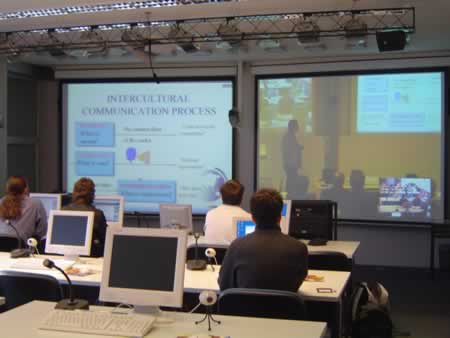
Guest lecture – Mr. Claes Berlin
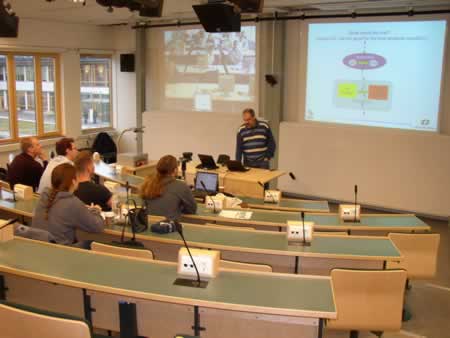
Ivica about communication with supervisors
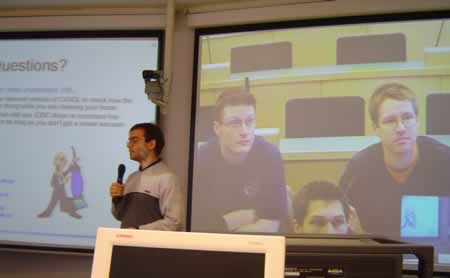
No no no, that can't be right, what do vacuum cleaners have to do with XML?
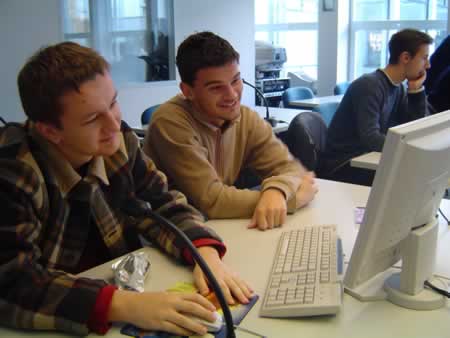
What is she doing? No way, nobody's that flexible!
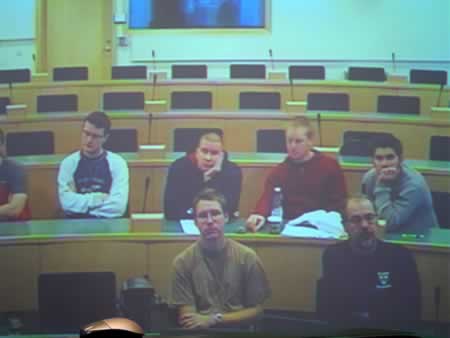
When things got tough…
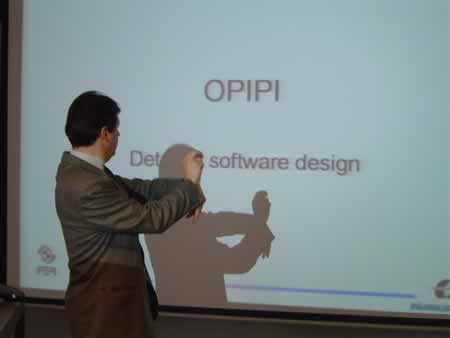
Mario was there to cheer us up:)
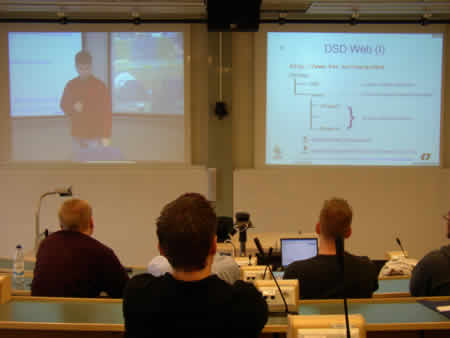
Igor in Sweden…
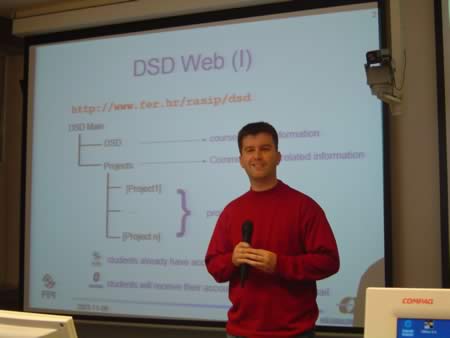
…and in Croatia
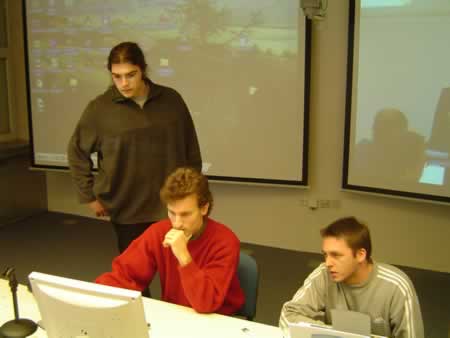
F7 to create dir, INS,*, RET to mark all and F5 to copy – it’s simple (if you use Total Commander:))!
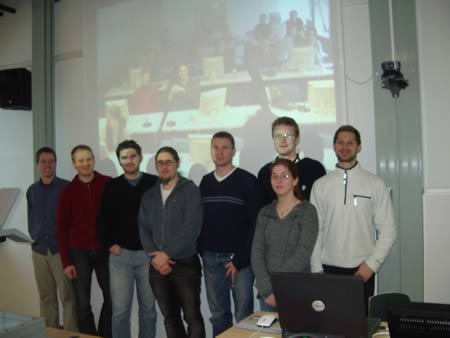
Swedish team …
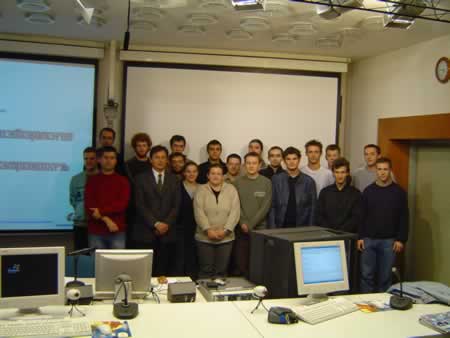
…and Croatian team


 Pristupačnost
Pristupačnost